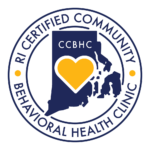The first step to saving a life can be simple but also incredibly difficult. If you know someone who is suffering, ask a simple two-part question: “Have you wished you were dead or wished you could go to sleep and not wake up? Have you actually had any thoughts about killing yourself?”
Suicide prevention is something NHM clinicians think about every day, and we ask those questions of every client. While a person may not openly talk about or volunteer that he or she is having suicidal thoughts, research shows definitively that a person at risk will answer honestly if caringly asked the simple questions above.
September was Suicide Prevention Awareness month. This yearly event raises awareness around this acute and persistent mental health crisis faced by our country, and while it received additional focus over those four weeks, it is something we address every day in the mental health field.
In August of this year, weeks prior to the start of suicide prevention awareness month, the U.S. Centers for Disease Control and Prevention announced a 2.6% increase in suicides during 2022. This follows on the heels of the 5% increase in 2021. Suicide continues to be the second leading cause of death for Rhode Islanders ages 15 to 34 while adults aged 44 – 54 years old have the highest rate of suicide deaths.
While the upward trend is slowing, it is going in the very worst direction.
The better news for Newport County is that our suicide rate is going down. Rhode Island overall has one of the lowest rates in the country, ranking 46th out of 50. According to the Centers for Disease Control, Rhode Island’s suicide rate is 10.3 deaths per 100,000 total population, below the 14.4 national average and down from the 14.0 rate that was quoted when we wrote about suicide in this column three years ago.
The questions quoted above are the first questions on The Columbia Protocol. The Protocol is a series of seven simple, clearly worded questions that assess a person’s risk of suicide. You may have been asked one, or all seven, at your last doctor’s visit. The questions are designed to be clear enough for a non-medical person to ask any friend or family member. If you are worried about someone, the most important thing you can do is ask them that question.
If they answer “yes,” call 988 or Newport Mental Health’s 24-hour Crisis Line, 846-1213.
For clients working with Newport Mental Health, if they answer “yes,” a Zero Suicide Champion steps in.
Zero Suicide is a national initiative we adopted in 2020. It is a clear pathway for additional treatment and services designed to keep people safe. Each step and their progress along the path is tracked in an electronic record, which is closely monitored by the Champion to ensure no one falls through the cracks. For example, we know that patients are 44 times more likely to die by suicide after being released from the hospital, so, if they require hospitalization, we track their stay and catch them when they get out with visits by case managers who ensure they continue therapy and treatment.
Every step is designed to keep them alive and moving toward a goal. Deborah Roberts, LICSW, LADC, is the head of our Zero Suicide committee. “Zero Suicide brings the conversation to the forefront and makes it okay to talk about it. Everyone has moments of pain; for those who have more than fleeting thoughts of ending their lives, we recognize that the pain is there and say ‘let’s talk about it.’ Our work with clients is about problem-solving. We work together to come up with a better solution to their problems than ending their life, and we find a way to give them hope and stop the pain.”
If you have questions about how to get help for yourself or a family member, please contact NMH or visit the RI Department of Behavioral Healthcare, Developmental Disabilities & Hospitals (BHDDH) website for a list of resources.
https://bhddh.ri.gov/mental-health/individual-and-family-information/where-get-help




